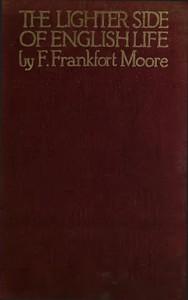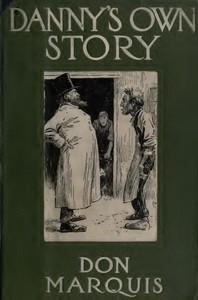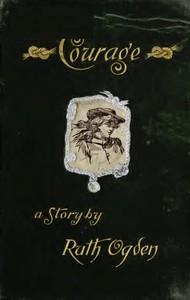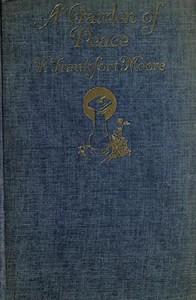Read this ebook for free! No credit card needed, absolutely nothing to pay.
Words: 68421 in 20 pages
This is an ebook sharing website. You can read the uploaded ebooks for free here. No credit cards needed, nothing to pay. If you want to own a digital copy of the ebook, or want to read offline with your favorite ebook-reader, then you can choose to buy and download the ebook.


: The Lighter Side of English Life by Moore Frank Frankfort Belcher George Frederick Arthur Illustrator - England Social life and customs; England Social life and customs Humor
Illustrator: George Belcher
THE LIGHTER SIDE OF ENGLISH LIFE
Author Of "The Jessamy Bride"
Illustrated in Colour by George Belcher
T. N. Foulis, London & Edinburgh
ONE MORNING A FEW MONTHS AGO A foreigner under the influence of an aeroplane descended somewhat hurriedly in a broad and--as he ascertained--a soft meadow in Nethershire; and while he was picking up his matches preparatory to lighting his cigarette--he has always a cigarette in his waistcoat pocket, for a man with a Kodak may be lurking behind the nearest tree--an agricultural labourer on his way to his work looked over the hedge at him. The foreign person noticed him, and after trying him in vain with German, French, and Hungarian, fell back upon English, and in the few words of that language which he knew, inquired the name of the place. "Why, Bleybar Lane, to be sure," replied the man, perceiving the trend of the question with the quick intelligence of the agricultural labourer; and when the stranger shook his head and lapsed into Russian, begging him to be more precise , the man repeated the words in a louder tone, "Bleybar Lane--everybody knows Bleybar Lane; and that's Thurswell that you can't see, beyond the windmill," and then walked on. Happily our parson, who had watched the descent of the stranger and was hastening to try if he could be of any help to him, came up at that moment and explained that he was in England, where English was, up to that time at least, spoken in preference to German or, indeed, any other language, and that breakfast would be ready at the Rectory in an hour.
I--THE ABORIGINES
I thought that it was very like Thurswell indeed, and afterwards I made it still more like by talking to the agricultural labourer himself about the incident.
"Ay, he spoke gibberish with a foreign accent, and I told him plain enough, when he had swept his arms and cried 'Where?' or words to that effect, that he was by Bleybar Lane, and that the place he couldn't see for the windmill was Thurswell; but it were no use: foreigners be in the main woeful ignorant for Christian persons, and I could see that he had no knowledge even of Thurswell when he heard the name."
That is our village down to the ground. You could not persuade one of the aborigines that there is any place in England or outside it of greater importance than Thurswell, because there is no place of greater importance to the Thurswellian. An aged inhabitant was taken by his son to see the coronation procession, and when he was asked what it was like, replied, after a suitable pause, that it ran Thurs-well's Day very hard--Thurswell's Day is the name given to the First Sunday after Trinity, when the Free Foresters and Ancient Shepherds march to church in sashes, with a band made up of a fife, three flutes, a drum, a concertina, and a melodion.
"Ay, neighbours, it ran Thurswell's Day hard," he affirmed, and did not flinch from his statement in spite of the incredulous murmur that arose from the bench nearest the door, which was immediately suppressed by the landlord, who was apprehensive of a riot.
More recently still another busybody endeavoured to deprive the village of the reputation which it had long enjoyed as the centre of English longevity. Now it would be impossible for any one to study the dates on the tombstones in the churchyard without noticing how great was the number of centenarians who died within the first fifty years of the nineteenth century in the parish of Thurswell. There were apparently eighteen men and fourteen women interred after passing their hundredth year; indeed, one woman was recorded to have reached her hundred and twenty-seventh year, which is a good age for a woman. The people were naturally very proud of the constant references made in print to their longevity; but one day there came down to the village a member of the Statistical Society, and after busying himself among the musty parish registers for a month, he announced his discovery that in every case but one the date of the birth of the alleged centenarians was the date of the birth of their parents. The investigator had noticed that all the alleged centenarians had "departed this life" during the rectorship of the Rev. Thomas Ticehurst, and centenarianism had always been his fad. He had preached sermon after sermon on Methuselah and other distinguished multi-centenarians, and he spent his time travelling about the country in search of evidence in confirmation of the theory that Methuselah, though somewhat beyond the average in respect of age, might yet have been exceeded on his own ground by many people living in the country districts of England. Nothing was easier, the investigator tried to show, than for a clergyman in charge of the registers, who had such a hobby, to assume, when any very old man or woman died in his parish, that he or she actually was twenty years or so older; and as the Christian names were nearly always hereditary, in nine cases out of ten he accepted the registry of the birth of the father as that of the lately deceased man, and the date of the birth of the mother in regard to the aged woman, the result being a series of the most interesting inscriptions.
Free books android app tbrJar TBR JAR Read Free books online gutenberg
More posts by @FreeBooks

: Danny's Own Story by Marquis Don Kemble E W Edward Windsor Illustrator - Fiction; Satire; Humorous stories


: Courage A story wherein every one comes to the conclusion that the Courage in question proved a courage worth having by Ogden Ruth Gordon F C Illustrator - Orphans Juvenile fiction; Friendship Juvenile fiction; New York (N.Y.) Juvenile fiction; Kindness J






